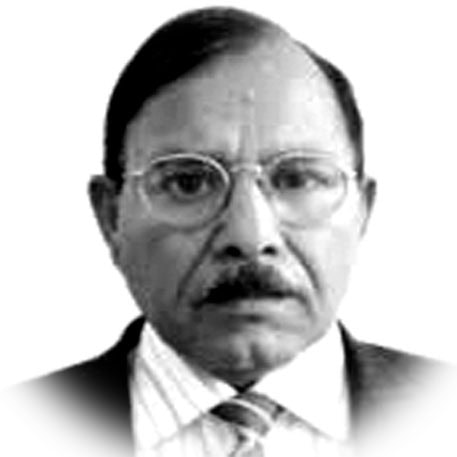Digression from pluralism by media
WHILE media and the opposition parties in a democratic dispensation are supposed to act as a watchdog against the incumbent government which requires an honest and objective evaluation of the government policies and constructive criticism aimed at path-correcting, it is an irrefutable reality that both of them relish the prospect of having incessant dig at the government, sometimes even descending into the realm of cynicism.
This phenomenon called disadvantage of incumbency is more pronounced and well-entrenched in the less developed countries like Pakistan which lack healthy political culture stemming from the internationally recognized norms of democratic behaviour. Opposition is for the sake of opposition.
Similarly bulk of the media enjoys focus on negativity rather than presenting a balanced view of the ground realities immersed in objectivity. The situation becomes even more worrying when the media is also highly polarized.
Media in its role as fourth pillar of the state actually represents the society and is under obligation to be pluralist in its approach, which means representing all segments of the society and shades of opinion, disseminating truthful information to the people and educating them in regards to the issues of national importance and supporting nothing but truth.
Pluralist media is acknowledged as a catalyst to promotion and strengthening of democracy; pivotal to peace and progress. But unfortunately our media lacks these traits. Currently it is highly polarized. This polarization is more pronounced in the electronic channels.
In the evening shows it is really painful to see truth becoming a casualty to the propagation of partisan views and even malicious swipes at the sitting government focusing on peripheral and frivolous issues which have no relevance to the challenges confronting the country and the way forward to winch it out of them.
Granted that under no circumstances media can be denied the right to criticize the government for its wrong policies and helping it to stay on course but that criticism needs to be wedded to the national interests instead of endorsing politics of self-aggrandizement, promotion of interests of particular political entities or vested interests.
It is also incumbent upon the media to acknowledge the good work done by the government in handling the national affairs and the measures put in place to help the poor masses in spite of difficult economic situation inherited by it, further devastated by the onset of corona virus.
An anodyne observer cannot fail to acknowledge and appreciate initiatives unfurled by the PTI government to hold the former rulers accountable who took the national exchequer for a ride and built fortunes through mind-boggling corruption, money laundering and stashed the looted wealth in foreign banks or bought properties in foreign lands with that money.
The government has also started a ruthless crackdown against different mafias who are responsible for manipulating markets and fleecing the public through undesirable trade and business practices.
It has refused to be blackmailed by the corrupt political leaders and has stood firm in its resolve to take the process to its logical conclusion.
A pluralist and unbiased media would have lent unqualified support to the foregoing steps of the government and given a true perspective to the people in regards to how the politicians and political parties played with their destiny and deprived them of the resources which could have been spent on their well-being.
But what we see on the part of the partisan media is a deliberate effort to belittle the government initiatives in this regard and attributing them to political vendetta.
More space and prominence is being given to the views of the opponents of the government who are desperately trying to defend their corruption through overt and covert means. Media should have taken a non-partisan view of the situation.
Not doing so amounts to professional dishonesty and digression from pluralism and internationally recognized media ethics.
Now coming to the performance of the government in regards to handling of the economy and protecting the masses from the adverse effect of the permeating conditions, there is no doubt that the masses are feeling the heat of the hydra-headed inflation which is attributable to a host of internal and external factors and the government also acknowledges it.
However the fact is that the government has not only taken myriad of measures to stem the rot in the economy but has also given top priority to mitigating the sufferings of the people through financial assistance and welfare-oriented initiatives under the umbrella of Ehsaas Programme.
Building shelters for the homeless, provision of health cards to the poor and substantial financial support for the less privileged communities to build their homes and myriad of other such undertakings speak volumes about pro-poor credentials of the government.
The government has successfully handled the onslaught of the first and second wave of Coronavirus and the effort won the acclaim of the international community.
It has shown unswerving commitment to deal with the climate change phenomenon and its initiative of plantation of 10 billion trees in this regard has been appreciated at the international level.
On the external front also the government has fared well.
It is for the first time that as a result of the diplomatic offensive of the government India failed to sell her narrative of the developments in the India-occupied Kashmir as her internal affair.
The way Prime Minister Imran Khan has advocated the cause of the people of Kashmir and highlighted the issue at the global level knows no parallel.
Under his stewardship Pakistan has also played a sterling role in promoting peace in Afghanistan. All these issues deserve to be highlighted without any bias.
— The writer is former Director General Ministry of Information and Broadcasting, based in Islamabad.










